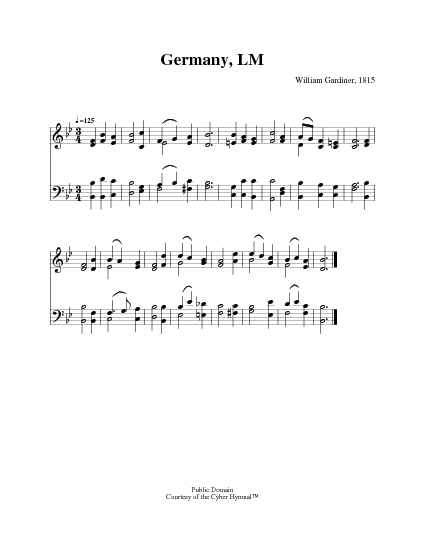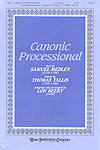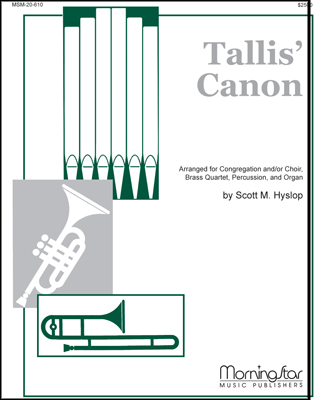- |
User Links
Morning: The Lord Is My Portion

O God, my God, my all Thou art
Translator: John WesleyPublished in 45 hymnals
Printable scores: PDF, MusicXMLAudio files: MIDI
Representative Text
1 O God, my God, my all thou art,
Ere shines the dawn of rising day,
Thy sovereign light within my heart
Thine all enlive...
Thine all enliv'ning pow'r display.
2 In blessing thee with grateful songs,
My happy life shall glide away,
The praise, that to thy Name belongs,
Hourly with...
Hourly with lifted hands I'll pay.
3 Abundant sweetness, while I sing
Thy love, my ravish'd soul o'erflows.
Secure in thee, my God and king,
Of glory that...
Of glory that no period knows.
4 Thy name, O Lord, upon my bed,
Dwells on my lips and fires my thought.
With trembling awe in midnight shade,
I muse on all...
I muse on all thine hands have wrought.
4 In all I do I feel thine aid.
Therefore thy greatness will I sing,
O God, who didst my heart be glad,
Beneath the shadow...
Beneath the shadow of thy wing.
Source: Urania: or a choice collection of psalm-tunes, anthems, and hymns, from the most approv'd authors, with some entirely new; in two, three, and four parts... #176
Translator: John Wesley
 John Wesley, the son of Samuel, and brother of Charles Wesley, was born at Epworth, June 17, 1703. He was educated at the Charterhouse, London, and at Christ Church, Oxford. He became a Fellow of Lincoln College, Oxford, and graduated M.A. in 1726. At Oxford, he was one of the small band consisting of George Whitefield, Hames Hervey, Charles Wesley, and a few others, who were even then known for their piety; they were deridingly called "Methodists." After his ordination he went, in 1735, on a mission to Georgia. The mission was not successful, and he returned to England in 1738. From that time, his life was one of great labour, preaching the Gospel, and publishing his commentaries and other theological works. He died in London, in 17… Go to person page >
John Wesley, the son of Samuel, and brother of Charles Wesley, was born at Epworth, June 17, 1703. He was educated at the Charterhouse, London, and at Christ Church, Oxford. He became a Fellow of Lincoln College, Oxford, and graduated M.A. in 1726. At Oxford, he was one of the small band consisting of George Whitefield, Hames Hervey, Charles Wesley, and a few others, who were even then known for their piety; they were deridingly called "Methodists." After his ordination he went, in 1735, on a mission to Georgia. The mission was not successful, and he returned to England in 1738. From that time, his life was one of great labour, preaching the Gospel, and publishing his commentaries and other theological works. He died in London, in 17… Go to person page >Text Information
| First Line: | O God, my God, my all Thou art |
| Title: | Morning: The Lord Is My Portion |
| Translator: | John Wesley |
| Meter: | 8.8.8.8 |
| Source: | Spanish |
| Language: | English |
| Copyright: | Public Domain |
Notes
O God, my God, my all Thou art. [Psalms lxiii.] This translation, by John Wesley, of a version of the 63rd Psalm, by an unknown Spanish author, was first published in J. Wesley's Collection of Psalms and Hymns, 1738. This was an enlarged edition of the Psalms and Hymns previously published by him at Charles-Town, printed by Lewis Timothy, 1737. The tr. was again published in the Wesley Hymns and Sacred Poems, 1739, p. 196, in 10 stanzas of 4 lines (Poetical Works, 1868-72, vol. i., p. 174.) In 1780 it was included in the Wesleyan Hymn Book, No. 425, with the omission of stanza iv., "In holiness within Thy gates." Curiously enough, this stanza, as "O Lord, within Thy sacred gates," is the opening stanza of a cento from this hymn given in several modern collections, including the Hymnary, 1872, the Hymnal Companion, 1870 and 1876, and others, together with many American collections. This cento is in Elliott's Psalms and Hymns, 1835, and is probably much earlier. Dr. Osborn says, in his note on this hymn (Poetical Works, vol. i., p. 174.) "
This noble version of Psalms lxiii. was inserted in the book of 1738, and therefore probably translated in America. The Spanish author is unknown."
Mr. G. J. Stevenson, in his Methodist Hymn Book Notes, 1883, p. 294, says positively:—
"This hymn is from the Spanish, translated by John Wesley when he was in America in 1735."
Although there is much to strengthen Dr. Osborn's suggestion, that the translation was made in America, we have seen no proof that it was made there in 1735; and somewhat against it is the fact that the hymn is not in the Charles-Town Collection of Psalms & Hymns, 1736-37. Bishop Bickersteth's note on the cento, in his Hymnal Companion (annotated edition, 1880), is well deserved :—
"This very beautiful version of part of the 63rd Psalm is varied from the translation of a Spanish version by J. Wesley. It seems to the Editor one of the most melodious and perfect hymns we possess for public worship."
The use, both of the Wesleyan Hymn Book text, and of the cento, "O Lord, within Thy sacred gates," is extensive, especially of the latter.
--John Julian, Dictionary of Hymnology (1907)
Tune
GERMANY (Gardiner)TALLIS' CANON
TALLIS CANON is one of nine tunes Thomas Tallis (PHH 62) contributed to Matthew Parker's Psalter (around 1561). There it was used as a setting for Psalm 67. In the original tune the melody began in the tenor, followed by the soprano, and featured repeated phrases. Thomas Ravenscroft (PHH 59) publish…
ITALIAN
Timeline
Arrangements
Media
Urania: or a choice collection of psalm-tunes, anthems, and hymns, from the most approv'd authors, with some entirely new; in two, three, and four parts... #176
- MusicXML (XML)


 My Starred Hymns
My Starred Hymns







